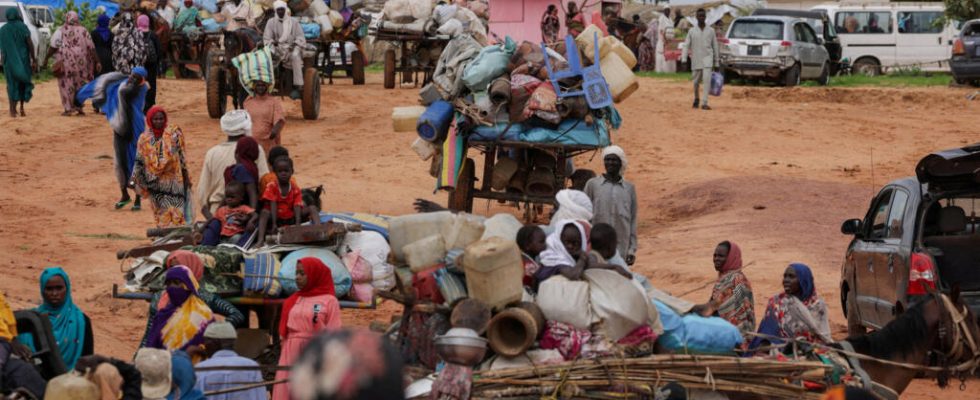Since April 15, Sudan has been tearing itself apart. In just over 5 months, the war between General al-Burhan’s regular army and General Hemedti’s paramilitary Rapid Support Forces has left thousands of civilians dead and displaced more than 5 million people. If Khartoum is the epicenter of the fighting, the clashes have spread to almost the entire country, and particularly to Darfur, a region ravaged by conflicts since 2003. In West Darfur, whose capital El-Geneina borders neighboring Chad, the war took an ethnic turn. The area is under the almost complete control of paramilitaries and Arab militias affiliated with them. In six months, more than 420,000 people have crossed the border into Chad. In the refugee camps, families deplore many missing people.
2 mins
With our special envoy back from Adré, Eliott Brachet
On a small piece of cardboard, Nadifa Mohammed wrote the number of her missing husband. At just 22 years old, the young woman found herself alone, with her newborn, in the middle of the fighting. “ I gave birth in the middle of the war. By the side of the road. Then we came to Chad. This child has no father. I don’t know if he’s alive or dead. The baby is very sick. I don’t even have any milk to breastfeed him anymore. »
In this clinic set up by Doctors Without Borders, dozens of women, children under their arms, are waiting for consultations. Every family is missing a child, a brother or a father. “ We took shelter in a displaced persons camp, then the militia attacked us and burned everything. We no longer had a choice, we had to leave. On the way, they killed one of my children. He was the eldest, he was 18. »
Jamia Ishaq is left with only two children. His daughter, suffering from malaria, stands to his right. And in her left hand, the mother supports the head of the youngest, born three months earlier in the middle of the fighting. “ Since 2003, we have been living in permanent war. I was raised in war, and today my children are growing up in war. Where should we go? Should we stay here? Should we go home? How can we repair our country? We do not know “.
Already in 2003, 400,000 Sudanese found refuge in Chad. There are twice as many now. Without any certainty of being able, one day, to return home while on the other side of the border, the war continues behind closed doors.
